#fun fact: I jotted down the idea for this comic YEARS ago and only just got to making it
Text

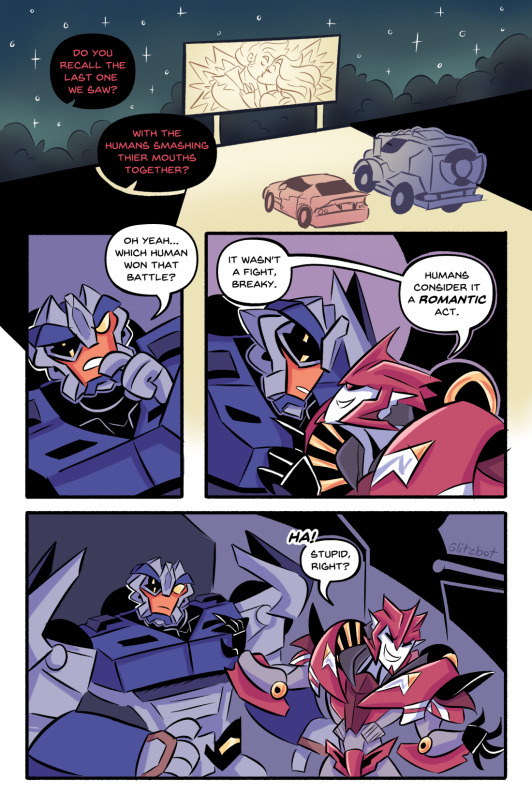
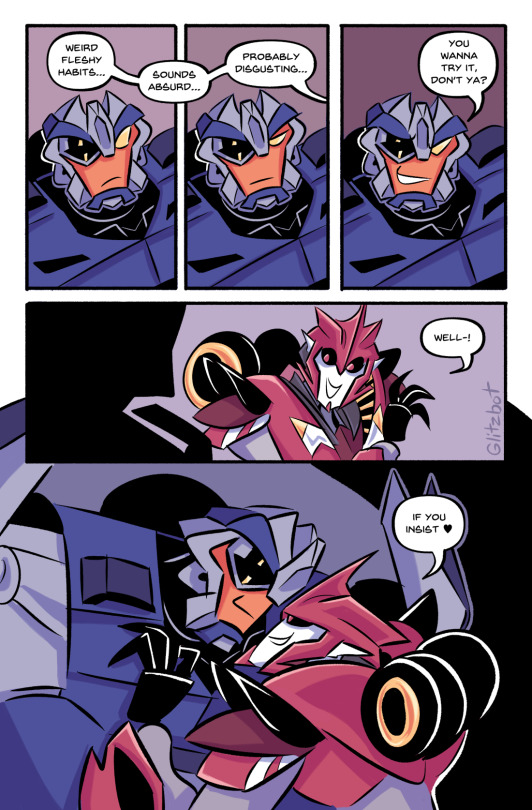
what if in TFP, Cybertronians weren't introduced to the concept of kissing until they came to Earth? 🤔
#KOBD#transformers prime#macaddam#transformers#tfp#knock out#breakdown#glitz draws#fun fact: I jotted down the idea for this comic YEARS ago and only just got to making it#always write down your ideas kids
4K notes
·
View notes
Photo
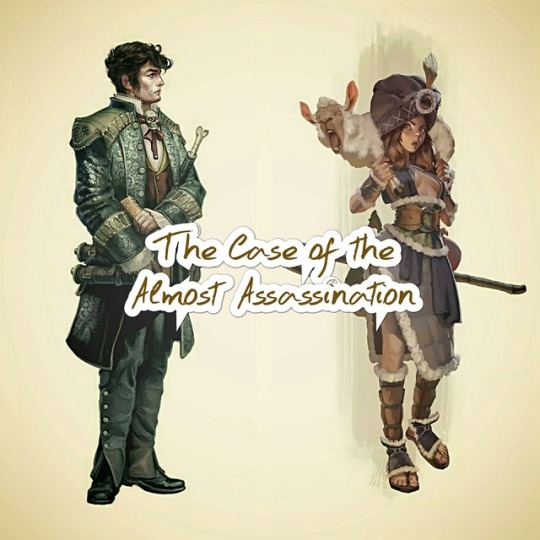
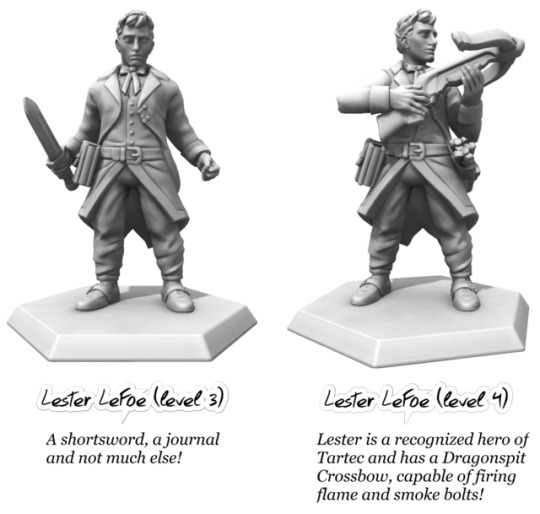
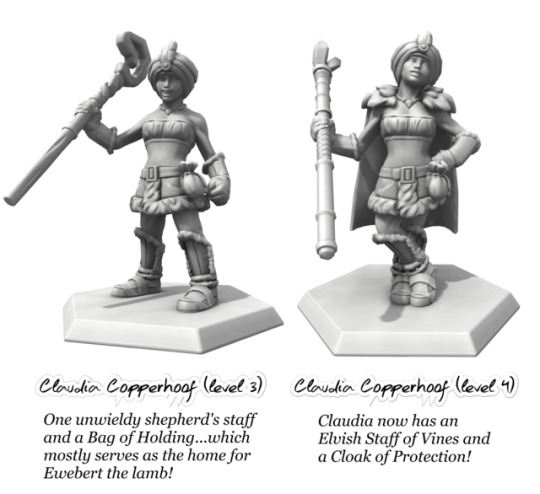
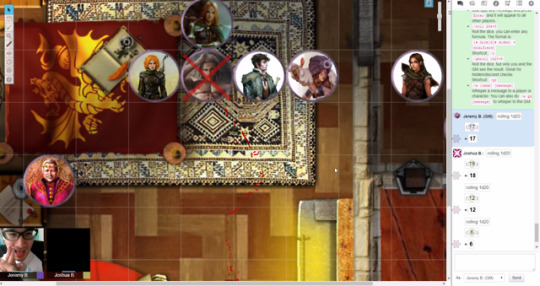
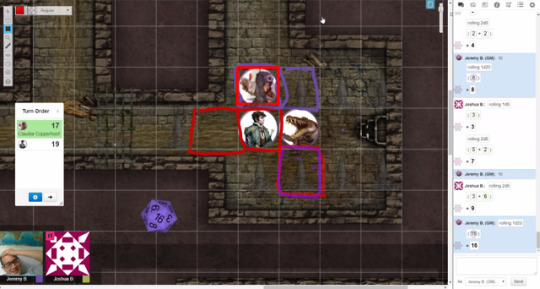
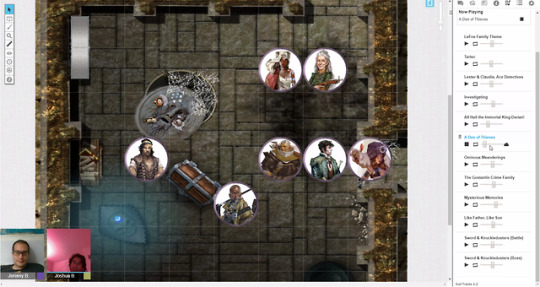
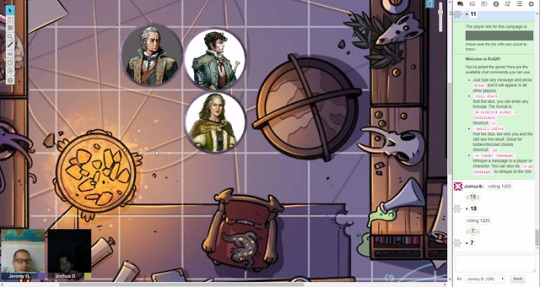
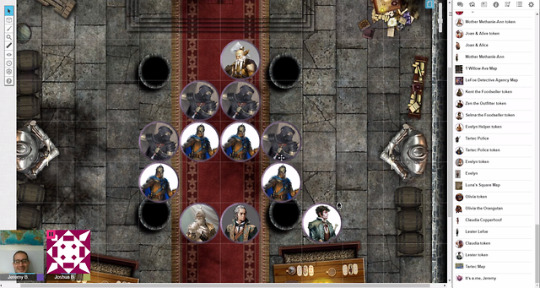


D&D With My Bro: The Case of the Almost Assassination
For the last four months, my brother and I have been playing a Dungeons & Dragons campaign that I whipped up called The Case of the Almost Assassination, and we came to a triumphant finale the other night. My bro’s called it a “steampunk mystery set in a fantasy world,” which is a good description, but on a more detailed level, the campaign was also heavily influenced by the Ace Attorney and Professor Layton games and exists in the universe of The Thirteenth Hour, a series of fantasy stories self-published by my brother that are inspired by 80s movies and cartoons. So the whole thing is one huge ball of fun nerdiness, and figuring that it might be cool to chronicle the campaign as we played, I captured each of our sessions on video. You can watch the whole thing on YouTube here in convenient playlist format (listening to it in the background like a podcast is also pretty nice, I gotta say), and there’s over 20 hours there, which is longer than some of the video games I’ve blogged about!
This wasn’t the first time that my brother and I had played D&D, since I’d previously introduced the game to him via a small four hour mini-campaign last time I visited his house. (He’s written some great thoughts on that adventure, as well as the experience of missing out on D&D in his childhood but getting the chance to discover it as an adult here.) But this was certainly the first time we’d played something long that continued from week to week, and it was also the first time we’d used virtual tabletop software - in this case the very useful Roll 20 - to play online. Minus a few minor internet hiccups, it ran smoothly, and I think both of us had a great time. The experience also made me ruminate on three interesting facts about D&D that I think not enough people write about, and I’m going to jot off a few thoughts on them here. Without further ado...
1) It is perfectly possible, and sometimes even more fun, to play D&D with just one other person.
Normally, Dungeons & Dragons conjures up images of a bunch of people - usually three or four at minimum - sitting at a table listening to instructions given to them by the Dungeon/Game Master, or DM. But the hardest part of D&D isn’t juggling rules or even fighting Challenge Rating 30 monsters - it’s getting a group of three or four people to meet up together on a consistent basis! This is why you can tell that anyone who still thinks of D&D as an activity for anti-social basement dwellers hasn’t actually played it, because in truth, the game is a demanding social commitment, especially for adults.
Thankfully, while it might be a less common way to play, you can totally enjoy D&D with just two people. Usually this means that someone more familiar with the rules has to be the DM while the other person acts as the player, which is what my brother and I did. Sometimes, the DM will also have to create a player character for themselves, and I did that in order to assist my bro with various battles and tricky scenes. This is more work for the DM, since they’ll have to juggle both their own character as well as the various non-playable characters (NPCs) encountered in the story, but if you’re up for it, it’s a rewarding exercise.
The best thing about playing D&D with just one DM and one player is how efficient it is. Three or four player D&D (to say nothing of five, six, or even more players) can get slowed down by arguments about how to progress or share loot, not to mention downtime in battles when a player who has a bazillion spells at his disposal deliberates on the one he wants to use that will both do the most damage and look the coolest. Don’t get me wrong, I actually love these sorts of interactions, but it’s also nice to strip all that fat away.
When it’s just one player and the DM, the DM also has the chance to make that player feel pivotally important by basing the story around them. Usually, the “unit” of D&D is the adventuring party, but in a one person + one DM game, the player gets to shine as the main character. Thus, it’s a good idea to choose the sort of story that can emphasize the important actions of an individual, and in my opinion the best ones for this are heavy on role-playing and character interaction rather than dungeon crawling and monster slaying. For example, a rogue adventure in an urban environment might fit the bill...or maybe even a mystery. Which leads me to my second point...
2) If you’re a DM making a homebrew campaign, try utilizing a setting that your players are already familiar with.
When my brother initially agreed to play a long campaign with me, I first thought that we might attempt one of the many published Forgotten Realms adventures that have been released for 5th Edition D&D. But then I realized that while my brother is mildly familiar with the Forgotten Realms, thanks to old comics and fantasy art from the 80s and 90s, he’s much more familiar with the setting that he created for his own fantasy novel, The Thirteenth Hour. My bro originally wrote this book when he was a high school kid and finally published it a few years ago, and in the time since, he’s written some short spin-offs and outlined ideas for a sequel. In the mini-campaign we’d played in October, his character was actually a half-elf ranger named the Wayfarer who’ll play a pivotal role in book two, and I initially pitched the whole idea of D&D to him as “Hey, this can help you brainstorm your sequel concepts before you put them down to paper.”
Once I began toying with the idea of making a homebrew campaign set in The Thirteenth Hour world, I started worrying that my brother’s universe was limited when compared to the “fantasy kitchen sink” setting of the Forgotten Realms. I mean, my bro’s book didn’t even have orcs! Or dwarves! What was I gonna do! But then I stopped being reliant on fantasy tropes and actually re-read The Thirteenth Hour, quickly finding that there was plenty I could work with.The universe that my brother created doesn’t have all of the races that Tolkien coined, but it’s still full of magic and wonder - a place where crafty old wizards inspired by The Last Starfighter’s Centauri run amok, strange technological anomalies like hover boards occasionally pop up and an otherworldly gatekeeper known as the Dreamweaver lets the spirits of the deceased visit their loved ones in dreams. And there’s also a large kingdom called Tartec ruled over by a vaguely Trump-esque king named Darian, who thinks he’s found the elixir of immortality when actually all he’s discovered is coffee. (If you think this sounds amusing, you can pick up a digital copy of my bro’s book on Amazon for less than a cup of Starbucks!)
Darian’s a funny character, and in one of the spin-off short stories that my brother wrote, an older and slightly wiser version of him reflects on how an assassin nearly took his head off with a dagger. This one sentence got me thinking who that assassin might be, and before I knew it I’d come up with the basic hook of a campaign. At the time, I was also reading Xanathar’s Guide to Everything, a D&D book that introduces 5th Edition’s Inquisitive subclass, which is basically a fantasy Sherlock Holmes. Suddenly, the ideas began bubbling in my head - the campaign would be a detective story set in Tartec with two leads trying to determine the identity of King Darian’s would-be assassins. Once I had this hook, I decided to draw further inspiration from the two video game series I think of when I hear the word “detective” - the Professor Layton games (which I like the style of but am rubbish at, since puzzles confound me) and the Ace Attorney series, which I’ve written about before. My brother would be the main character Lester LeFoe (patterned slightly after Phoenix Wright, the star of Ace Attorney), and I’d be the spunky female assistant Claudia Copperhoof (a little similar to Phoenix’s assistant Maya Fey).
I hoped that situating these characters in my brother’s world would breed a quicker sense of familiarity than he’d get from playing a generic warrior in the Forgotten Realms, and I think it’s safe to say that the experiment succeeded. Thus, even though 5th Edition D&D products all use the Realms as their default setting, it’s worth remembering that you don’t have to follow this lead, and can always tailor your campaign to a world that your players are already familiar with. In my brother’s case, he’s a writer who made his own world, but for someone else this can easily be Middle-Earth or the Hyborian Age of Robert E. Howard’s Conan books. The D&D Player’s Handbook and Dungeon Master’s Guide actively encourage modifying published adventures to appeal to your players’ favorite settings, in fact, and not only will this potentially help to decrease the amount of lore you need to explain as a Dungeon Master, but it’ll also help keep the attention of everybody listening to you. Because who wouldn’t want to insert themselves into their favorite bit of genre fiction as a legendary figure? In many ways, the whole point of D&D is to give people a framework to do that!
3) If you’re DMing for someone who doesn’t have much time to play, remember that a linear campaign is not necessarily a bad thing, and simplify the more complicated rules - making stuff up whenever necessary!
On page six of the 5th Edition Dungeon Master’s Guide, there’s a whole section entitled “Know Your Players,” which is all about altering your game to appeal to the personalities at your table. If you’re DMing for people who like acting and appreciate in-depth stories, give them plenty of role-playing opportunities and narrative twists, for instance, and if you’re dealing with folks who’d rather just make their characters look cool, try having them fight lots of monsters who reward snazzy armor and weapons.
There should really be a sub-section there entitled “How to run a game for players who are low on time.” Because that’s my brother in a nutshell. He’s a late 30s dude who works a demanding job and has two small children to take care of, one of whom is barely half a year old. (You can hear my nephew gurgling in the background in a few of our videos, and sometimes we’d even have to stop playing when the baby woke up from a snooze, which is a situation that I’m sure all new parents can relate to.) I know for a fact that my brother is also the type of guy whose eyes will glaze over when presented with a lot of complicated rules - as is probably the case for anyone who only has at most an hour or two, often in the late evening, to sit down to play a game when the rest of the family is in bed.
In my opinion, the way to tailor your game to such a player is to make a brisk, well-paced story that they can actually see to a satisfying conclusion. This means that the campaign might be fairly linear - a word which seems to have bizarre negative connotations to some D&D players out there, who are always ranting about “railroading,” which is when a DM puts players down a predetermined path without any wiggle room. I think it’s important to note that “linear” does NOT necessarily equate to “railroading,” however, and that a sprawling campaign with a trillion different outcomes and choices to make at every interval isn’t necessarily the best approach for someone who can only play a little bit each week and might get bored if they feel like they aren’t making tangible progress.
Let me put it this way - the campaign that I made for my brother was tightly designed. Instead of giving Lester and Claudia a vast landscape to explore, everything was confined to the city of Tartec, and I made an effort to nudge the characters towards certain objectives that they had to complete in order to solve the mystery, such infiltrating a manor house in the upper class section of town. But I also made sure to flesh out these few areas (quality over quantity) and allowed a certain degree of freedom in how the objectives could be cleared. For instance, I initially thought that Lester and Claudia might sneak into the manor house through the sewers. But as I was brainstorming strategies with my bro, the topic of disguises came up, because Claudia owned a disguise kit. And eventually we decided to infiltrate the party with Lester masquerading as a nutty old lady and Claudia as his keeper, which was a fun improvisation that I never would’ve anticipated - but still a viable way to complete the main objective that didn’t negatively impact the story’s pacing.
On the topic of keeping the pace of the story brisk for a player low on time, I feel like it’s also important to minimize the number crunching and reduce D&D’s more complicated rules whenever possible. In practice, this meant that I took care of as much behind-the-scenes stats management as possible so my bro wouldn’t have to, though I did always try to explain to him what was going on (and what all of those funky dice rolls meant) so he’d have some understanding of the game’s mechanics. Also, whenever we were in a situation where I wasn’t sure of a rule, instead of wasting time looking at the Player’s Handbook, nine times out of ten I’d just make something up on the fly. For example, our adventure had a friendly NPC orangutan in it (specifically chosen because I know my brother likes backflipping primates) and she was supposed to be a super strong, unpredictable force of nature in the final battle. I’d lost the stats that I’d used for her when she first appeared, and instead of looking for them, I decided to just roll a d20 for her damage, figuring that the end result would be close enough. In that same vein, there were a few instances where I made mistakes, since I’m still a relatively new DM. Once I totally miscalculated a character’s special attack, leading to a funny NPC death (which I’d expected but not exactly in that way) and on multiple occasions I flat out forgot to apply modifiers to attack rolls. But instead of going back to redo everything I’d either just laugh it off or forge ahead, hoping that my bro didn’t notice, which he never did.
Ultimately, my philosophy for DMing is to not sweat the small stuff TOO much if it probably doesn’t matter in the long run, especially if you’re running a game for just one person whose free hours are precious. I believe this sort of approach might be sacrilegious to some of the more rules-oriented DMs out there, like the ones who spend hundreds of words arguing over damage variables on the D&D Subreddit. But I’m not one of those folks, and I’d prefer to follow the advice of Sly Flourish, a DM who has a great website where he advocates a “lazy” style of Dungeon Mastering which de-emphasizes nitpicking over rules in favor of just having fun.
At the end of the day, having fun is what D&D is all about. It’s a game of make believe that can really bring out your inner storytelling-loving child, and in an era where very few adults are encouraged to even consider the concept of “make believe,” it can be a truly wonderful breath of fresh air. And if you don’t believe me...I encourage you to watch The Case of the Almost Assassination and try not to crack up at some of the situations that Lester LeFoe and Claudia Copperhoof found themselves in. :)
The pics above are either art that I assembled for our adventure or screenshots that I took while we were playing! The little figurines I designed via HeroForge.
#pixel grotto#musings#video games#dungeons & dragons#dungeons and dragons#d&d#dnd#d&d 5e#5e#roll20#roll 20#tabletop gaming#roleplaying game#rpg#the thirteenth hour#thirteenth hour#phoenix wright#ace attorney#professor layton#layton
8 notes
·
View notes
Text
Title: Yours
Author: Iwalkalone258
Character(s): Barry Allen, Iris West
Category: Romance
Rating: T
Word Count: 1340
Chapter(s): 1 of ?
Summary: They’re solid; her and Barry. They don’t argue…a lot and they have an understanding that only people after over twenty something years of knowing each other have. They’re still in love, they’ll always be and they respect each other tremendously. So why are they in therapy again?
Chapter 1: Couple’s Therapy
A/N: This prompt is from the lovely @valeriemperez. Everyone go check out her page she’s the one who requested this. @miamiflashfan also requested a similar prompt so this is for her as well. I had so much fun writing this and I hope you guys enjoy it as much as I did writing it. This is a series and I have other prompts that will get added as I complete them. I want to thank @wanderer765 because she’s truly awesomesauce and girl you are amazing. I feel like I thank you so much but you’re truly amazing. Thanks in advance for reading. Westallen is truly a godsent <3 Here’s to the westallen impending nuptials!
-
“It’s just…” Iris pauses, and glances over at Barry who’s watching her with a strange look on his face. “It’s just that he’s used to being in charge.” She deadpans looking back at the therapist. She still can’t believe they’re in couple’s therapy for Barry’s inability to let her be in control or maybe it was hers? Who knows. The point is they’re in couple’s therapy. She almost giggles at the outrageousness of the situation.
“And why is that?” The therapist questions. She’s eyeing both Barry and Iris over the pair of glasses perched on the bridge of her nose with a type of nonchalance most therapists are known for. At least the ones Iris has seen.
Barry opens his mouth once, twice before he swallows and attempts to formulate a proper response. He has to be a leader. He’s the Flash. He’s the guy who saves people, who an entire city depends on. He doesn’t know how to be anything else.
When Barry says nothing, Iris looks over at him. He’s wearing his thinking face. She too opens and closes her mouth in indecision. She can’t exactly tell their therapist about his superhuman abilities or his intense need to save people. That would be a no-no. Thinking on her feet she watches Barry as she responds.
“I think he has to be for the rest of us,” She says, returning her gaze back to the therapist. “I think we give him that power, to be the person who makes the major decisions and to ultimately be the one who shoulders the burdens so we don’t have to.” She’s toying with her engagement ring as she finishes her statement.
Yes, in Barry’s absence she was the one who stepped up to the mantle. Who stood in his place and guided the team the way he would’ve but now he’s back and apart of Iris feels like she’s no longer needed. Being a leader isn’t about how strong you are, it’s about valor- a trait both of them possess.
“Do you work together?”
“Mmm?” Barry and Iris gurgle at the same time.
“N-no,” They say in unison.
“We don’t,” Iris adds, crossing and uncrossing her legs. It’s one of her nervous tells and Barry can’t help but swallow again for the hundredth time. He’s wearing his best poker face but he can tell their therapist is getting suspicious. Who said therapy was easy anyway? Especially when secrets were involved.
“I work for CCPD as a Forensic scientist,” Barry throws out in hopes of distracting her from asking anymore Flash-related questions.
“And does Iris work there as well?”
Iris lifts an eyebrow and glances between Barry and the therapist for a long period. She has no idea what to say because they do work together outside of their relationship and outside of their respective occupations. But that fact plays no part in their current dilemma and that dilemma is, they have very strong opinions.
“No,” Barry’s the one to answer this time. “She’s a reporter and sometimes she comes to me for research on her stories. So I guess in that sense we do work together,”
Quick save, Iris thinks releasing a slow breath and smiling in reassurance. The urge to facepalm is strong though. What’s the point of therapy if you can’t share the root of the problem?
“Exactly. We aren’t coworkers in the traditional sense of the word.” Iris tacks on, bobbing her head in agreement with Barry’s answer. Instead of asking another question, the therapist jots something down on her notepad and Iris wonders what it is.
It can’t be anything horrible, right? Their relationship doesn’t exactly classify as dysfunctional. At least she doesn’t think it does.
They’re solid; her and Barry. They don’t argue…a lot and they have an understanding that only people after over twenty something years of knowing each other have. They’re still in love, they’ll always be and they respect each other tremendously. So why are they in therapy again?
The rest of the session ticks by relatively fast with Iris directing the conversation to other areas of their lives. Thankfully, the therapist doesn’t seem concerned with how involved they are in each other’s professional lives or the fact that they are both liar mclying pants.
*
Barry eyes her as she steps out of her heels in the front hall of their loft. They’d completed their first successful couples therapy session. The urge to giggle tickles the base of her throat but she fights it. The last thing she wants is for Barry to think she’s not serious about the whole ordeal. This is about relearning how to work together, as leaders.
Shrugging out of her blazer she barely spares him a glance and walks to the kitchen to get a glass of badly needed wine. Chances are they’ll order take-out from his favorite pizzeria or hers.
Iris is on her tiptoes reaching for a wine glass when she feels Barry directly behind her. His fingers press into her waist and the giggle she was trying to fight earlier slips out.
“Fine,” She begins lowering down to the balls of her feet and twisting to face him, mission retrieving wine glass forgotten.
“Therapy is ridiculous,” She admits blowing hot air through her lips. She almost loses it in fits of laughter as Barry feigns outrage, his head moving back and forth in a solid nod of disagreement. Iris wants him to take this whole therapy thing seriously but she’s being a hypocrite if she isn’t honest with herself too.
Truth of the matter is they don’t need therapy. She likes their relationship and the co-dependence they share. She likes the way she knows what he’s thinking before he does. They’ll learn to lead together, the same way they learned how to do everything else.
“What do you mean?” He’s wearing an incredulous expression and she can’t help but grin. It’s official, she can’t hold in how comical the day has been. “You have to believe in the process, Iris,”
“Oh, shut up,” She says slapping a hand on his chest. Under her palm she can feel the steady knock, knock of his heartbeat. Her eyes gravitate to where her hand landed and she stares for a lingering moment. A tiny part of her still can’t believe he’s here when only a few weeks ago he was trapped in the speedforce. When Iris looks back up, her lips lift into a doopey smile and all’s right with the world.
“We dodged a bullet, you know?” He utters referring to the moment the therapist dug to close to the truth.
“I know,” Iris holds up two perfectly manicured fingers an inch apart. “We were so close to getting caught, so close.” She binds her knees a fraction to dramatize her point but the goofiness quickly evaporates when Barry bends and brushes his lips over hers suddenly. It’s teasing, tender but their simple touch of lips does the trick in kick-starting her heartbeat.
It’s like her heart says to Barry’s, ‘There. Now we’re whole.’
Her lips are tingling as Barry finds her arms and brings them around his neck, something he’s known to do. He’s staring at her in that way, the way he does when he’s about to swallow her whole. God, she’s missed that stare. The green of his eyes is darker, and his face is all soft and sweet. All Barry like. Her fingers brush through the hair at the nape of his neck and she sends a silent ‘thank you’ into the universe for having him back.
“I think we did good,” He states and she smiles- big and wide because when it’s just them, it’s Barry and Iris against the world and not the Flash against the world.
“Me too babe.”
She steps onto his feet and leans up, her body flush against his. Pressing her mouth to his, she sighs into the kiss and the day melts away.
Iris figures that with or without therapy, they’re going to be just fine.
#westallen#westallen fanfiction#westallen fanfic#barry allen#iris west#the flash#barry and iris#iris and barry#iris west allen#iris westallen#iris west-allen#the flash fanfic#the flash fanfiction#westallen prompts#prompts#valeriamperez#*westallenfanfic#fanfiction#fanfic#*westallenfic
64 notes
·
View notes